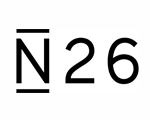Even if you don’t like credit cards and shun any form of credit, they do have their uses, for example no-deposit car rentals; no pre-paying hotel bills (plus guaranteed bookings); obtaining cash 24-hours a day; simple telephone and mail-order payments; greater safety and security than cash; and above all, convenience. Note, however, that not all Portuguese businesses accept credit cards, particularly not those in rural or remote areas.
Wealth Warning
If you plan to live in Portugal you must ensure that your income is (and will remain) sufficient to live on, bearing in mind devaluation (if your income isn’t paid in euros), rises in the cost of living, and unforeseen expenses such as medical bills or anything else that may reduce your income (such as stock market crashes and recessions!).
Foreigners, particularly retirees, shouldn’t under-estimate the cost of living in Portugal, which has increased significantly in the last decade (although outside the major cities it’s still among the lowest in western Europe). If you’re planning to live permanently in Portugal, it’s important to seek expert financial advice regarding Portuguese taxes. This will (hopefully) ensure that you take optimum advantage of your current tax status and don’t make any mistakes that you will regret later.
Fiscal Number
All residents and non-resident foreigners with financial affairs in Portugal must obtain a tax card ( cartão de contribuinte) and a fiscal number ( número de identificação fiscal/NIF). The tax card is necessary before you can purchase a home in Portugal. You need to complete a form at the local tax office ( finanças) in the area where you will be buying a home and provide a photocopy of the identification pages of your passport.
You will usually be given a temporary fiscal number for the first few months and will receive a permanent number after the purchase of a property. Your fiscal number must be used in all dealings with the Portuguese tax authorities, when paying property taxes and in various other transactions, e.g. without a fiscal number you cannot register the title deed of a property or open a bank account in Portugal.
All non-residents who own a holiday or second home in Portugal must nominate a local resident (of any nationality) as their fiscal representative, who will receive all communications from the Portuguese tax authorities. You can also have your fiscal representative receive your bank statements, ensure that your bank is paying your standing orders (e.g. for utilities and property taxes) and that you have sufficient funds to pay them. If you let a home in Portugal through a Portuguese company, they may perform the above tasks as part of their services.



